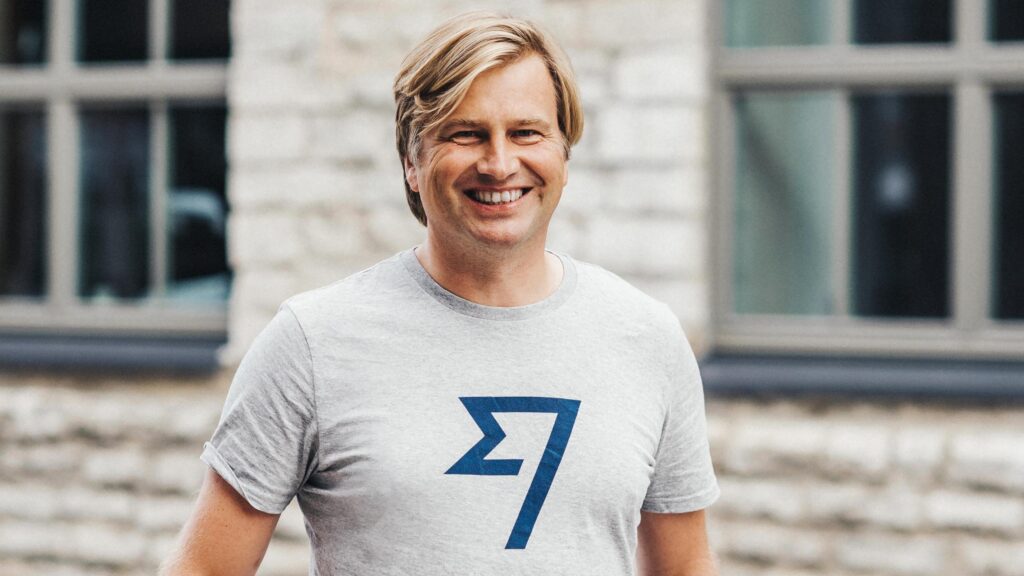
Kristo Kaarmann is the co-founder of TransferWise, a peer-to-peer international money transfer business and a first of its kind.
Early life and education
Kristo Käärmann was born in August 1980 in Estonia. When Käärmann was nineteen years old, he started his first business, an online investment tracking portal Investor.ee. Käärmann’s first business never turned a profit, although the service was popular at the time, and was acquired a few years later for an undisclosed amount.
Käärmann received a BSc in 2002 and MSc in 2006, in Mathematics and Computer Science from Tartu Ülikool.
Early career
Kristo Käärmann’s was a consultant at PricewaterhouseCoopers and was responsible for analysis and design of management information systems for retail banking clients. In 2007, Käärmann became a manager at Deloitte, where he was specialized in implementations and delivering systems, actuarial modelling systems, tools and data environments for client’s finance, actuarial departments, and risk. Käärmann supervised the firm’s technology strategy to assist clients with management information and systems architecture challenges in response to the Solvency II regulatory requirements.
Käärmann served with insurers and European banks to regenerate their procedures and systems. Shocked by their incompetence, Käärmann teamed up with Taavet Hinrikus, then Skype’s director of strategy, to produce a completely new system for transferring money across borders.
TransferWise history
Kristo Käärmann, along with Skype’s first employee, Taavet Hinrikus founded TransferWise in 2011, an Estonian money transfer service, with headquarters in London and offices in cities including Tallinn, Singapore, and New York.
As Estonians working between the UK and their native country, the two had personal encounter of the pain of international money transfer due to bank fees on the amounts they obliged to convert from pounds to euros and vice versa. It encouraged them to create a private arrangement, with Hinrikus – who was paid in euros – putting this currency straight into Käärmann’s Estonian account so he could pay his loan without converting pounds to euros, while Käärmann reciprocated by putting pounds into Hinrikus’ UK account. This arrangement drove them to begin developing a crowdsourced currency exchange service to provide a low-cost alternative to established institutions.
The idea was to coordinate transfers with other people and then pay a little fee while using the inter-bank mid exchange rate, unlike the old-style currency transfers where there are buy and sell prices, and the broker takes the change between the two.
The UK financial regulator finalized their approval in February 2012. The two founders stopped making users buy Bitcoin in April 2013, citing pressure from banking providers. In its first year, dealings throughout TransferWise amounted to €10 million. TransferWise declared its customers were sending over £1 billion monthly using the service in May 2017. TransferWise’s claim to save up to 90% against banks in May 2016, was considered as misleading by the Advertising Standards Authority. According to Monito.com, an independent comparison site, the company was actually on average 83% affordable than the big four UK banks on primary currency routes but could be up to 90% lower on some occasions. An internal memo from Santander in April 2017, revealed how much the bank was gaining from its fees on an international money transfer and how much it could lose to new participants, specifically TransferWise.
In April 2017, it declared its decision to move its European headquarters due to Brexit, from London to the European continent. The company declared its APAC hub in Singapore, the same month, after turning as one of the first remittance companies to be authorized to offer online verification in Singapore. The TransferWise began a new service in May 2017, the Borderless account. Initially, the record is for freelancers and businesses with an account and card for consumers planned for later in the year. The Borderless account was obtainable in the US and Europe. A multi-currencies Mastercard debit card was launched in January 2018, for customers located in the European Union and support was later added for US customers with numerous countries assumed to follow in 2019. Also in May 2017, the company declared it had been operationally successful since the start of the year.
Funding
The TransferWise obtained $1.3 million in a seed funding from a consortium including venture firms Index Ventures and IA Ventures, NYPPE, IJNR Ventures, as well as individual investors such as former Betfair CEO David Yu, PayPal co-founder Max Levchin, and Wonga.com co-founder Errol Damelin. TransferWise also got investment after being selected as one of Seedcamp 2011’s winners. In May 2013, TransferWise had obtained a $6 million investment round led by Valar Ventures, Peter Thiel. The company raised in June 2014, an additional $25 million, adding Richard Branson as an investor. In January 2015, TransferWise had raised a Series C round fund amounting $58 million, led by Andreessen Horowitz.
In May 2016, TransferWise secured a funding of $26 million that raised the company’s estimation to $1.1 billion. As of May 2016, TransferWise has raised $117 million in funding. In November 2017, the company raised a $280 million in Series E funding led by Old Mutual Global Investors and IVP, as well as Japanese Mitsui & Co., Sapphire Ventures, and World Innovation Lab. In September 2018, the company’s income had gotten $151 million.
The company supports more than 750 currency routes across the world including AUD, CAD, EUR, GBP, and USD, and provides multi-currency accounts. In 2018, TransferWise net profit reached $8 million, and customer-based reached 4 million, who collectively transfer around $4 billion monthly.